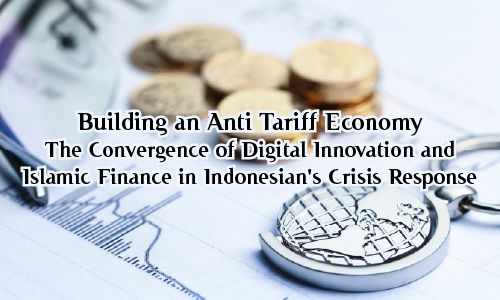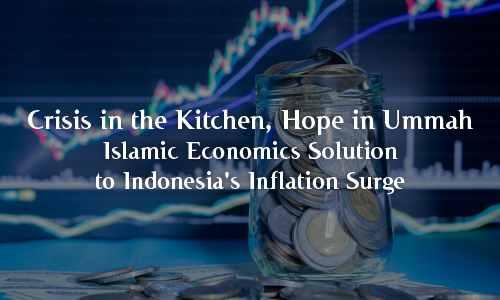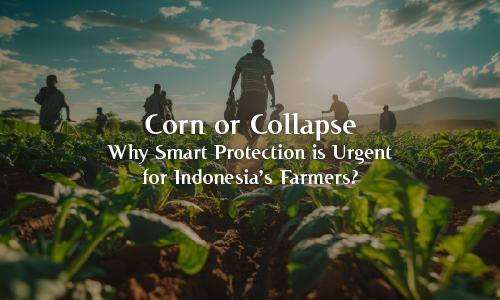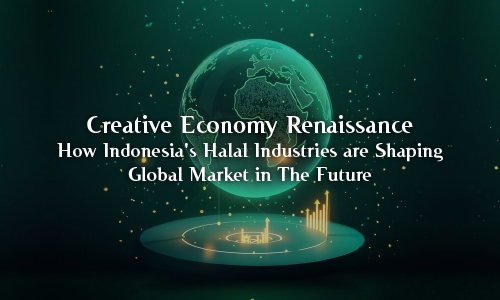
Summary : The resurgence of protectionist trade policies by the United States, particularly the imposition of 25% tariffs on foreign-produced iPhones and 50% tariffs on European Union imports in 2025, has generated widespread economic uncertainty and triggered disruptions in global trade, investment, and financial markets. For Indonesia, a developing country highly integrated into global supply chains, these policies present significant external challenges that threaten growth, trade balance, and macroeconomic stability. In response, Indonesia has pursued internal economic resilience strategies, notably through the implementation of the Quick Response Code Indonesian Standard (QRIS), which enhances transaction efficiency, supports micro, small, and medium enterprises (MSMEs), and expands financial inclusion. Beyond digital innovation, this paper argues that the principles of Islamic economics offer a holistic framework to address both global shocks and domestic vulnerabilities. Key concepts such as the role of the state as a steward (khalifah), the prioritization of the real economy, the implementation of interest-free financial systems, ethical business practices, and the development of Sharia-compliant financial technology contribute to building a more just, stable, and inclusive economy. This integrated approach positions Indonesia to withstand global economic turbulence while fostering long-term sovereignty, social equity, and sustainable development.
Introduction
In late May 2025, U.S. President Donald Trump announced an aggressive new tariff policy: a 25% tariff on iPhones manufactured outside the United States and a 50% tariff on all imports from the European Union. This policy triggered global financial market turmoil and heightened global economic uncertainty. Major stock indexes in the United States and Europe fell, investors shifted toward safe-haven assets, and the U.S. dollar weakened amid fears of an economic slowdown. The resurgence of "trade war" rhetoric raised concerns about a potential deceleration in global economic growth and trade volume. For developing countries like Indonesia, these events pose dual challenges: external pressure from a deteriorating global economic environment and domestic political volatility that could further destabilize the national economy.
In response to these challenges, Indonesia has taken steps to enhance its economic resilience. This paper discusses three main dimensions of the country’s strategic response. First, it analyzes the global…

















